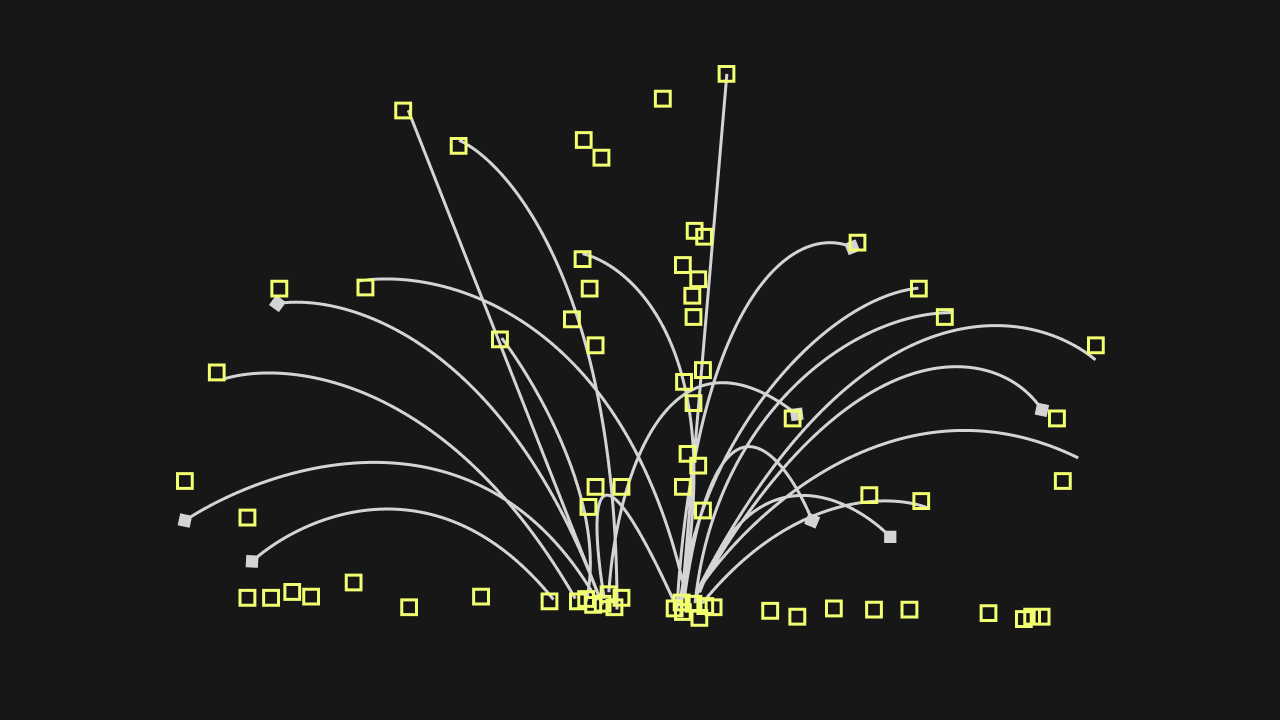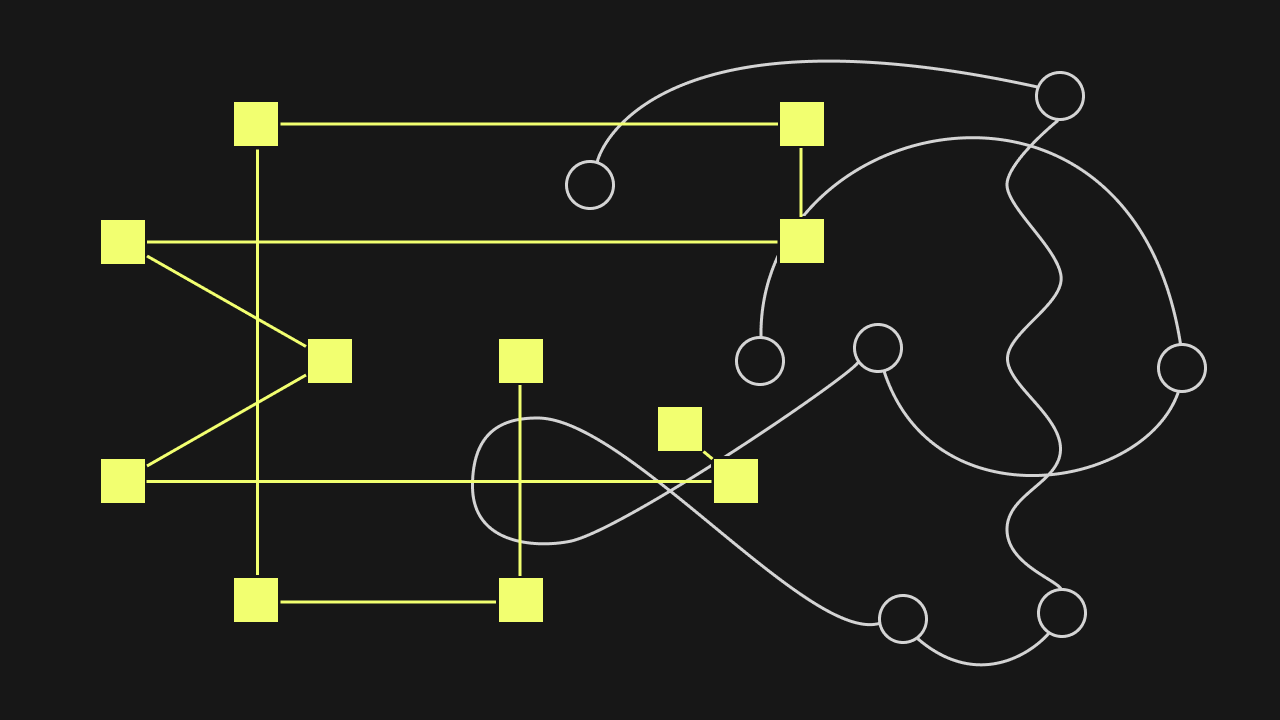
Key Takeaways
The integration of AI into business processes is sparking a new wave of transformation that goes far beyond simple task automation.
- What is the shift: It represents a move from automating manual labor to automating cognitive labor. AI can now handle judgment-based work, understand unstructured data, and manage complex exceptions.
- The business impact: This means businesses can now automate entire end-to-end value chains, not just fragments of them.
- The key challenge: Leaders must rethink process design, job roles, and operating models to create a symbiotic relationship between humans and AI.
The integration of Artificial Intelligence (AI) into the core fabric of enterprise operations is no longer a futuristic vision but a present-day imperative. For leaders steering their organizations toward sustained growth and resilience, understanding the transformative power of AI in business process enhancement is paramount.
Adopting AI for businesses transcends mere technological upgrades; it signifies a fundamental shift in how work is executed, how insights are gleaned, and ultimately, how value is delivered. As Artificial Intelligence business applications continue to mature, they are moving beyond pilot projects to deliver significant, measurable impacts across the entire operational spectrum.
For CIOs, CEOs, CFOs, and other C-suite executives, the conversation has evolved from whether AI in business process redesign will happen to how it can be strategically and ethically implemented to unlock unprecedented efficiencies and competitive advantages.
This article will delve into the profound implications of AI in business process evolution, highlighting its substantial benefits, addressing emerging trends and challenges, and illustrating how your company can navigate this next wave of transformation successfully. The journey with AI in business processes is about intelligent empowerment and strategic advancement.
Understanding the Foundation: What Are Business Processes?
Before exploring the revolutionary impact of AI in business process optimization, it is crucial to have a clear definition of a business process itself. In essence, a business process is a structured series of activities or tasks, carried out by people or systems, designed to achieve a specific organizational outcome or deliver a service or product to a customer.
These processes are the operational lifelines of any enterprise, governing workflows, decision-making, and value creation. They span from routine tasks like expense reporting or customer support ticket handling to complex, end-to-end operations such as product lifecycle management or global logistics.
The health of an organization is directly tied to the efficiency and effectiveness of its processes. Inefficient or outdated processes lead to bottlenecks, increased operational costs, frustrated employees, and diminished customer satisfaction.
Conversely, streamlined and intelligent processes foster productivity, agility, innovation, and a superior stakeholder experience—all critical goals for any Artificial Intelligence business strategy. The strategic deployment of AI in business processes is aimed squarely at achieving these positive outcomes.
The Evolution of Automation: What is AI-Powered Business Process Automation?
Business Process Automation (BPA) has been a long-standing objective for organizations striving for operational excellence. Traditionally, BPA has focused on automating repetitive, rule-based tasks using software to handle structured data and predictable workflows. However, the advent of Artificial Intelligence has dramatically reshaped the landscape of automation.
When discussing AI in business process automation today, we refer to the application of sophisticated AI technologies—including machine learning (ML), natural language processing (NLP), generative AI, computer vision, and intelligent decision engines—to automate tasks that were previously considered too complex, dynamic, or reliant on human judgment for traditional automation.
This is not merely about accelerating tasks; it is about embedding intelligence into the business process itself, enabling systems to learn, adapt, predict, and even make autonomous decisions within defined parameters. This advanced automation is central to effectively leveraging AI for businesses.
How AI is Reshaping Business Processes
The application of AI in business processes is multifaceted, offering a diverse toolkit of capabilities that can be tailored to various operational needs. Artificial Intelligence allows companies to progress from basic task automation to intelligent process orchestration, continuous improvement, and adaptive operational models.
The strategic integration of AI in business processes focuses on augmenting human capabilities and streamlining intricate operational challenges. Here is how AI for businesses is making a significant impact:
- AI-Driven Decision Intelligence: Moving beyond basic automation, AI is increasingly used for complex decision support and, in some cases, autonomous decision-making. By analyzing historical data, real-time inputs, and market conditions, AI models can provide predictive insights, recommend optimal actions, or even execute decisions within a business process, enhancing agility and responsiveness. This trend towards AI-driven decision intelligence is a key aspect of modernizing the AI in business process landscape.
- Hyperautomation and Integrated Ecosystems: The concept of hyperautomation—automating everything that can be automated—is gaining traction. This involves combining AI, ML, RPA, and other technologies to create a deeply integrated ecosystem that automates not just individual tasks but entire end-to-end processes. The goal for many AI in business process initiatives is to achieve this level of seamless, comprehensive automation.
- Enhanced Customer and Employee Experiences: AI in business process automation is pivotal in personalizing customer interactions through intelligent chatbots, virtual assistants, and recommendation engines. Internally, AI tools are streamlining workflows, providing intelligent assistance, and reducing mundane tasks for employees, leading to higher engagement and productivity. This aligns with a Human-Centric Automation philosophy, ensuring technology empowers people.
- Generative AI in Content Creation and Data Synthesis: Generative AI models are being used within business processes to create diverse content, from drafting emails and reports to generating code and marketing copy. They can also synthesize information from multiple sources, providing summaries and insights that accelerate understanding and decision-making within a business process.
- Advanced Analytics for Predictive Operations: AI excels at analyzing vast datasets to identify patterns, predict future outcomes like equipment failure or demand fluctuations, and optimize resource allocation. This predictive capability is transforming how AI for businesses is used in areas like supply chain management, predictive maintenance, and financial forecasting.
Streamlining Insights: How to Use AI for Process Mapping and Mining
To improve a business process, one must first understand it thoroughly. Process mapping and mining, traditionally manual and often subjective exercises, are being revolutionized by Artificial Intelligence.
Here’s what AI-powered process mining tools are capable of:
| Capability | Description |
| Automatically Discover and Visualize As-Is Processes | By analyzing event logs from enterprise systems (ERP, CRM, etc.), AI can generate accurate, objective maps of how processes are currently executed, highlighting variations and actual workflows. This is foundational for any AI in business process improvement effort. |
| Identify Bottlenecks, Inefficiencies, and Compliance Issues | AI algorithms can pinpoint delays, redundant steps, resource underutilization, and deviations from prescribed procedures within a business process. |
| Recommend Data-Driven Optimizations | Based on the analysis, AI can suggest targeted improvements to streamline the business process, enhance efficiency, and ensure compliance. |
| Enable Continuous Monitoring and Improvement | Post-implementation, AI can continuously monitor processes to ensure they perform optimally and to identify emerging issues, fostering a cycle of ongoing refinement essential for effective AI in business process management. |
The Tangible Returns
The strategic integration of AI in business process management delivers a compelling suite of benefits, profoundly impacting an organization’s operational efficiency, strategic capabilities, and market competitiveness. These advantages underscore why a robust AI for businesses strategy is critical.
- Significant Leap in Operational Efficiency: Automating tasks, optimizing workflows, and reducing manual interventions with AI in business processes lead to dramatic improvements in speed, accuracy, and resource utilization.
- Smarter, Faster Decision-Making: Artificial Intelligence business tools provide deeper, more predictive insights from complex data, empowering leaders to make more informed, timely, and impactful decisions.
- Substantial Cost Optimization: Reducing manual labor for repetitive tasks, minimizing errors and rework, predicting costly failures, and optimizing resource deployment through AI in business process enhancements all contribute to significant cost savings.
- Elevated Stakeholder Experiences: Personalized and responsive customer interactions, coupled with employees being freed from tedious tasks to focus on more strategic work, result in higher satisfaction for both customers and staff. This human-centric benefit is a core tenet of successful AI in business process adoption.
- Increased Agility and Resilience: Organizations leveraging AI for businesses can adapt more quickly to market changes and operational disruptions. AI-driven processes are often more scalable and resilient.
Challenges such as data quality, integration complexity, skill gaps, and ethical considerations must be proactively managed, emphasizing the need for robust Transparency and Safety in all AI in business process initiatives.
Kognitos: Automating Business Processes with the Power of Natural Language AI
As organizations embark on their journey to leverage AI in business process automation, selecting the right platform is crucial for success. Kognitos is at the vanguard of this transformation, offering a unique and powerful solution that enables enterprises to automate their most complex business processes using natural language.
This is not about turning business users into coders. It is about empowering the individuals who know their processes best—the business experts themselves—to describe their operational workflows in plain English. Kognitos then applies its advanced Artificial Intelligence to understand this intent and translate it into robust, auditable, and executable automation. This approach aligns with core beliefs in Human-Centric Automation and Unified, Simplified Platforms, making sophisticated AI for businesses truly accessible.
Kognitos offers a distinct advantage by focusing on genuine AI-driven understanding and reasoning, moving far beyond scripted or rule-based automation. Here is how Kognitos elevates your AI in business process strategy:
- Intuitive Automation in English: Business users can define, build, and modify automations using everyday language. This dramatically lowers the barrier to entry, accelerates time-to-value, and ensures automations precisely mirror business logic and intent.
- Resilience Through Understanding Intent: Because Kognitos grasps the underlying purpose of a business process described in English, its automations are inherently more adaptable to changes in application interfaces or data formats than brittle UI-based scripts. This is Process-Centric Design in action.
- Specialized, Adaptive AI Reasoning: Kognitos does not just execute predefined steps; it interprets instructions, intelligently handles variations and exceptions, seeks clarification when necessary, and can learn from interactions. This is Specialized, Adaptive AI designed for enterprise needs.
- Built-in Transparency and Governance: Automations expressed in natural language are inherently self-documenting, making them easy for anyone to understand, review, and audit. This fosters transparency and safety, crucial for responsible and compliant AI deployment.
- Enterprise-Grade Scalability and Empowerment: Kognitos is architected to handle the complexity, security, and scale required for enterprise-wide AI in business process automation. This Empowerment Over Fear approach allows companies to Invest in Optionality, building a future-proof automation capability.
What specific solutions does Kognitos offer for AI-driven business processes?
Kognitos is engineered to automate a wide spectrum of mission-critical, end-to-end business processes that drive enterprise value. Examples include:
| Area | Examples of Automation |
| Finance & Accounting | Automating procure-to-pay, order-to-cash, financial close, variance analysis, and compliance reporting. |
| Supply Chain & Operations | Optimizing order management, invoice reconciliation, logistics coordination, and inventory reporting. |
| Customer Service & Support | Handling complex customer inquiries, orchestrating resolutions across multiple backend systems, and personalizing communications at scale. |
By partnering with Kognitos, organizations are not merely adopting an automation tool; they are embracing a new paradigm for AI in business process transformation. It is a paradigm where Artificial Intelligence becomes a true collaborator, understanding the language of your business to unlock unprecedented levels of efficiency, insight, and innovation. This is how AI for businesses moves from promise to practical, powerful reality.
The era of AI in business process intelligence is here. Organizations that strategically embrace this evolution will define the next frontier of operational excellence and market leadership.
Discover the Power of Kognitos
Our clients achieved:
- 97%reduction in manual labor cost
- 10xfaster speed to value
- 99%reduction in human error
A business process is a defined sequence of activities or tasks, performed by people or systems, aimed at achieving a specific organizational goal or delivering value to a customer. Optimizing each business process is crucial for overall business performance and a primary focus for applying AI in business process strategies.
Business process automation (BPA) involves using technology to execute recurring tasks or entire processes previously done by humans, aiming to improve efficiency, consistency, and speed. The integration of AI in business process automation significantly expands BPA’s scope, enabling the automation of more complex, cognitive, and adaptive tasks.
AI in business processes can be applied in numerous ways: automating complex decision-making through data analysis, enabling intelligent document processing, personalizing customer interactions via AI-driven communication tools, optimizing supply chains with predictive insights, enhancing fraud detection and compliance, and streamlining HR functions. The overarching goal when using AI in business processes is to make them more efficient, intelligent, and responsive.
Utilizing AI for process mapping typically involves AI-powered process mining and discovery tools. These tools analyze data from existing enterprise systems (like ERPs and CRMs) to automatically generate visual maps of current business processes. They can identify actual workflows, variations, bottlenecks, and areas for improvement within any given business process, providing a faster, more objective foundation for AI in business process optimization initiatives.
The benefits of leveraging AI in business process improvement are extensive. They include significantly enhanced operational efficiency and productivity, more accurate and faster data-driven decision-making, substantial cost reductions through automation and error minimization, superior customer and employee experiences via personalization and the reduction of mundane work, increased organizational agility and scalability, fostering innovation leading to a stronger competitive edge, and improved governance and risk management. Applying AI for businesses to core processes unlocks profound value.
Kognitos enhances AI in business process automation by empowering business users to define, build, and manage automations using natural language (plain English). This makes automation more accessible, intuitive, and aligned with business needs. Kognitos utilizes sophisticated AI reasoning to understand user intent, making automations more resilient and adaptable than traditional methods. This accelerates development, promotes transparency, and effectively embeds Artificial Intelligence business capabilities within your operational teams.
Kognitos offers versatile solutions for AI-driven automation across a wide range of complex, end-to-end business processes. This includes automating critical functions in finance (e.g., accounts payable, financial reporting, reconciliations), supply chain (e.g., order management, logistics coordination), and customer operations (e.g., intelligent service request handling). Kognitos is specifically designed to tackle dynamic processes that span multiple systems and require nuanced understanding, enabling organizations to effectively scale their AI in business process strategies.








